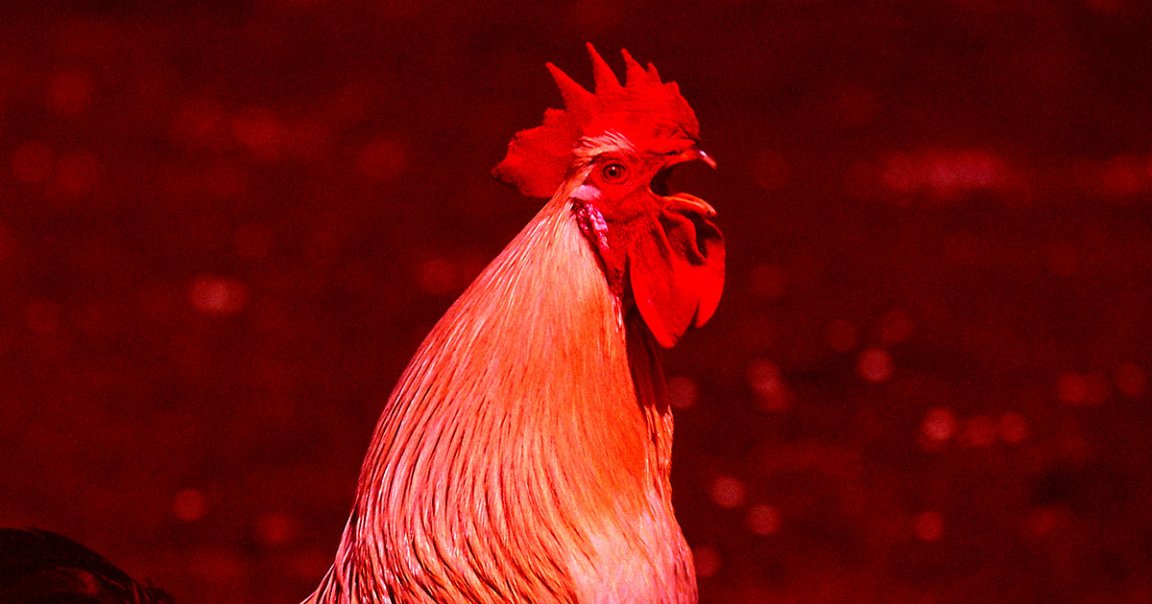
Bad Motherclucker
Ferocious feral chickens with “supercharged survival skills” have gotten out of control in Hawaii.
The island of Kauai in particular has become famous for its astronomical chicken population, according to Tove Danovich for The Atlantic — a striking report, since Danovich literally wrote the book on the critters. The wild roosters and hens roam the beaches, peck at landscaping, and crow all the livelong day. They’ve even become a local tourist attraction.
While tourists may love the birds, a fair chunk of the locals really don’t, and see them as more of a pest. Some say that the constant crowing disturbs the peace while foraging roosters and hens ruin yards and make it impossible to grow any food.
But unfortunately for them, the hens are winning. After all, according to Danovich, these aren’t just any old chickens. They’re super chickens — and humans will likely continue to have a really tough time getting rid of them.
Chicken Run
As Eben Gering, an evolutionary biologist at Nova Southeastern University, explained to Danovich, Hawaii’s modern-day chickens are descendants of the wild red jungle fowl that were brought to the islands by Polynesian settlers and already-domesticated chickens that were carried to the islands by European colonizers.
Then, in the 1980s and 1990s, disaster hit. Two devastating hurricanes destroyed a number of coops, setting many of the domesticated chickens loose.
Over time, the DNA from wild fowl mixed with that of domestic chickens. The result? Ridiculously resilient creatures that thrive when in proximity to humans, and in some cases also reproduce year-round.
“One of the reasons that red jungle fowl were domesticated into chickens and that they make good agricultural animals,” Gering told Danovich, “is that they were pretty hardy and adaptable to begin with.”
On top of this natural resilience, the avian critters are also pretty resourceful. Among a string of unsuccessful efforts and proposals designed to curb the chicken population, Oahu officials spent $7,000 to put out traps across the island last year, according to the report.
The results were disappointing, to say the least. Over the course of several months, only 67 chickens were caught. For the folks at home, that means officials paid over 100 bucks per captured clucker.
“They’re not the smartest birds, but they’re smarter than people give them credit for,” Gering told Danovich. “Those attributes tend to be helpful in adapting to new environments.”
It’s a tough situation. After all, the chickens are really just trying to live their chaotic lives — and we just happen to live in their world.
More on birds beating humans: Furious Geese Are Defeating Humans, Scientists Find